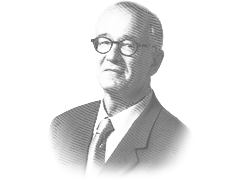Diane Burton is an organizational sociologist working at the intersection of organizational theory, human resource management, and entrepreneurship. Her goal is to understand how organizational systems and practices affect organizational performance and individual career outcomes. Throughout her work she focus on the sources and consequences of organizational heterogeneity. Burton also emphasizes how individuals and organizations intersect: organizations are created by individuals and individual careers unfold within and across organizations. Her research is part of a renaissance in organizational sociology that recognizes the interrelationship of individuals and organizations. Burton has three interrelated streams of research: (1) studies of “employment models” in entrepreneurial firms from the Stanford Project on Emerging Companies (SPEC) where she conceptualizes human resource management systems as an important type of organizational heterogeneity; (2) studies of founding teams and firm evolution where she examines the drivers of organizational variety; and (3) studies of middle managers and internal labor markets. In conducting her research, Burton collects original data and relies upon a combination of quantitative and qualitative methods including field-based interviews, surveys, and archival data analysis.
Expertise
Selected Publications & Presentations
- Christine M. Beckman and M. Diane Burton. 2008. “Founding the Future: Path Dependence in the Evolution of Top Management Teams from Founding to IPO.” Organization Science. 19(1):3-24.
- M. Diane Burton and Christine M. Beckman. 2007. “Leaving a Legacy: Role Imprints and Successor Turnover in Young Firms.” American Sociological Review. 72:239-266.
- Christine M. Beckman, M. Diane Burton and Charles O’Reilly. 2007. “Early Teams: The Impact of Team Demography of VC Financing and Going Public.” Journal of Business Venturing. 22(2):147-173.
- Paul Osterman and M. Diane Burton. 2004. “Ports and Ladders: The Nature and Relevance of Internal Labor Markets In A Changing World.” In Pamela Tolbert and Rosemary Batt (Eds.) Oxford Handbook on Work and Organization. Oxford: Oxford University Press.
- M. Diane Burton, Jesper B. Sorensen and Christine M. Beckman. 2002. “Coming from Good Stock: Career Histories and New Venture Formation” In Michael Lounsbury and Marc J. Ventresca (Eds.) Research in the Sociology of Organizations. 19:229-262. Oxford, U.K.: Elsevier (JAI Press).
- M. Diane Burton. 2001. “The Company They Keep: Founders’ Models for Organizing New Firms.” Pp. 13-39 in Claudia B. Schoonhoven and Elaine Romanelli (Eds.) The Entrepreneurship Dynamic: Origins of Entrepreneurship and the Evolution of Industries. Stanford, CA: Stanford University Press.
- James N. Baron, Michael T. Hannan and M. Diane Burton. 2001. “Labor Pains: Organizational Change and Employee Turnover in Young, High-Tech Firms.” American Journal of Sociology, 106(4):960-1012.
- James N. Baron, Michael T. Hannan and M. Diane Burton. 1999. “Building the Iron Cage: Determinants of Managerial Intensity in the Early Years of Organizations.” American Sociological Review, 64(4):527-547.
- James N. Baron, M. Diane Burton and Michael T. Hannan. 1999. “Engineering Bureaucracy: The Genesis of Formal Policies, Positions, and Structures in High-Technology Firms.” Journal of Law, Economics, and Organization, 15(1):1-41.
- Michael T. Hannan, M. Diane Burton and James N. Baron. 1996. “Inertia and Change in the Early Years: Employment Relations in Young, High-Technology Firms.” Industrial and Corporate Change, 5(2):503-536.
- James N. Baron, M. Diane Burton and Michael T. Hannan. 1996. “The Road Taken: The Origins and Evolution of Employment Systems in High-Tech Firms.” Industrial and Corporate Change, 5(2):239-275.
- M. Diane Burton and David B. Grusky. 1992. “A Quantitative History of Comparative Stratification Research.” Contemporary Sociology, 21(5):623-631.

